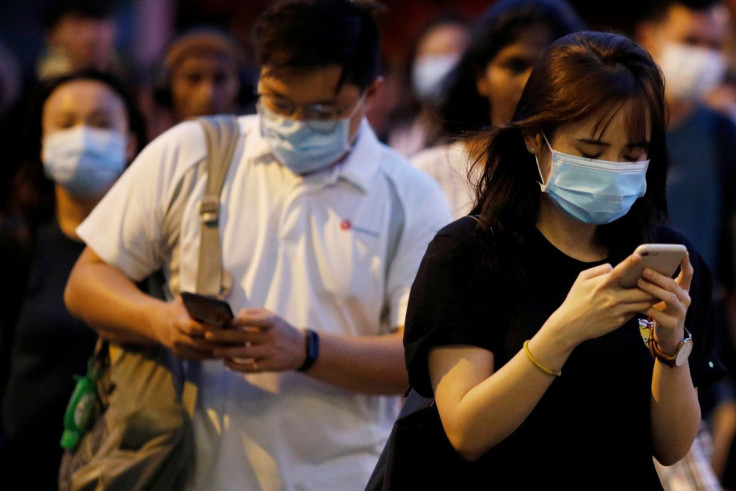Omicron Breakthrough Infections May Spare Young Hearts; No Need To Delay Mammogram After Vaccination

The following is a summary of some recent studies on COVID-19. They include research that warrants further study to corroborate the findings and that has yet to be certified by peer review.
Omicron breakthrough infections may spare young hearts
The Omicron variant of the coronavirus does not have a negative affect on cardiovascular health in young adults who have been vaccinated, a small study suggests.
Earlier variants have had a detrimental affect on patients' hearts and blood vessels, and researchers expected to see similar patterns when they compared 23 young adults with Omicron breakthrough infections diagnosed within the past six weeks to 13 vaccinated young adults who never had COVID-19. The average age of study participants was early- to mid-20s. As reported on Friday in the , markers of cardiovascular health included blood vessel function and responsiveness to stimuli, stiffness of artery walls, heart rate variability, and the heart's responses to changes in blood pressure. "Contrary to our hypothesis," the researchers said, there were no differences in any of these parameters between healthy, vaccinated young adults who contracted COVID-19 during the Omicron wave and those who never had COVID.
The finding that "not all variants may be detrimental to cardiovascular health in young, otherwise healthy adults... is all very promising," they said. "However, there is some recent evidence that cardiovascular health may still be impacted in the long term... Therefore, follow-up studies will be needed to determine long-term cardiovascular health outcomes."
Delaying mammography after COVID vaccination unnecessary
Women should not delay routine mammograms after receiving a COVID-19 mRNA vaccine, experts now say.
In some women, the vaccines cause swollen lymph nodes around the armpits, which could be misread as a possible sign of breast cancer on a mammogram. Early after the vaccines became available, the Society for Breast Imaging advised women to wait four-to-six weeks after the second shot before having a screening mammogram because it was thought the abnormalities would resolve by then. New research shows that so-called axillary lymphadenopathy after vaccination can last longer than initially reported. In 111 women with this side effect after receiving an mRNA COVID vaccine, the swelling took an average of 12-13 weeks after the second shot to resolve completely, researchers reported in the . Women should not delay their mammograms for extended periods, the Society for Breast Imaging now says.
In an directed at asymptomatic, average risk women with no history of breast cancer or lymph node cancer, the group now advises that if screening mammograms show the kind of lymph node abnormalities associated with the vaccines, the exams should be repeated six months later.
mRNA vaccine response stronger after fourth dose vs third
A fourth dose of a COVID-19 mRNA vaccine can boost antibodies and other immune responses to levels higher than those seen after the third dose, according to UK trial data.
Researchers recruited 166 adults who had received a booster dose of the Pfizer/BioNTech mRNA vaccine after two doses of either AstraZeneca's viral vector vaccine or initial inoculation with Pfizer/BioNTech's shots. They were randomly assigned to receive either another Pfizer/BionTech shot or Moderna's mRNA booster as a fourth dose. Half of the participants were older than 70, and the average interval since the third shot was seven months. Two weeks after the fourth dose, levels of antibodies targeting the spike on the coronavirus were up to twice as high as antibody levels seen four weeks after the third dose for both vaccines, regardless of initial vaccine schedule, the researchers reported in . Responses of immune cells called T cells were significantly increased 14 days after the fourth dose compared with 28 days after the third dose, but only in participants who received three Pfizer shots followed by a Moderna booster.
Researchers cautioned that all of the increases "will probably wane rapidly, as has been observed after third doses." Participants with high levels of immune responses before the fourth dose had limited boosting from that shot, they said, which suggests there may be a "ceiling" to the booster effect and that people with high antibody levels "are unlikely to gain much boosting from additional doses."
Click for a on vaccines in development.
© Copyright Thomson Reuters {{Year}}. All rights reserved.





















